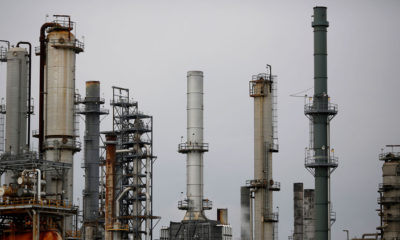The Federal Government of Nigeria has announced that domestic crude oil refiners and other operators in the sector are now permitted to buy crude oil in either naira or dollars.
This move comes as a response to longstanding demands from stakeholders in the industry and is poised to reshape the dynamics of the nation’s oil market.
The announcement was made on Monday through the Nigerian Upstream Petroleum Regulatory Commission during a briefing in Abuja.
According to the commission, the decision to allow the purchase of crude oil in naira or dollars aligns with the provisions of Section 109(2) of the Petroleum Industry Act 2021.
The development of the new template involved collaboration with key stakeholders, including representatives from NNPC Upstream Investment Management Services, Crude Oil/Condensate Producers, Crude Oil Refinery-Owners Association of Nigeria, and Dangote Petroleum Refinery.
Chief Executive of the Nigerian Upstream Petroleum Regulatory Commission, Gbenga Komolafe, said the new template will ensure a seamless implementation of the Domestic Crude Oil Supply Obligation (DCSO) and maintain a consistent supply of crude oil to domestic refineries.
He highlighted that the flexibility to transact in either naira or dollars would alleviate pressure on the country’s foreign exchange rate, potentially benefiting the overall economy.
Responding to inquiries regarding the currency of transaction, Komolafe reiterated that payments could be made in either United States dollars or naira, or a combination of both, as agreed upon in the Sales and Purchase Agreement (SPA) between the producer and the refiner.
This flexibility is expected to ease the financial burden on indigenous refineries and support their sustainability in the face of economic challenges.
The decision comes after modular refineries in Nigeria faced threats of shutdown due to difficulties in accessing foreign exchange for crude oil purchases.
These refineries with a combined capacity of producing 200,000 barrels of crude oil daily, struggled to secure dollars for purchasing crude, which is priced in US dollars.
The Crude Oil Refinery Owners Association of Nigeria had previously expressed concerns over the impact of the foreign exchange crisis on their operations.
Furthermore, alongside the announcement regarding crude oil purchases, the government revealed an increase in the country’s crude oil and condensate reserves to 37.5 billion barrels as of January 1, 2024.
Gas reserves also saw an uptick, reaching 209.26 trillion cubic feet during the same period, signifying substantial potential for future exploration and production activities.
As Nigeria navigates its oil and gas landscape, the decision to allow indigenous refineries to purchase crude oil in naira or dollars marks a significant step towards supporting local industry players and promoting economic stability in the sector.
With the potential to enhance operational efficiency and mitigate financial challenges, this policy shift holds promise for the growth and sustainability of Nigeria’s oil refining sector.

 Billionaire Watch3 weeks ago
Billionaire Watch3 weeks ago
 Startups4 weeks ago
Startups4 weeks ago
 News4 weeks ago
News4 weeks ago
 News4 weeks ago
News4 weeks ago
 Bitcoin4 weeks ago
Bitcoin4 weeks ago
 Naira4 weeks ago
Naira4 weeks ago
 Forex3 weeks ago
Forex3 weeks ago
 Treasury Bills4 weeks ago
Treasury Bills4 weeks ago



























